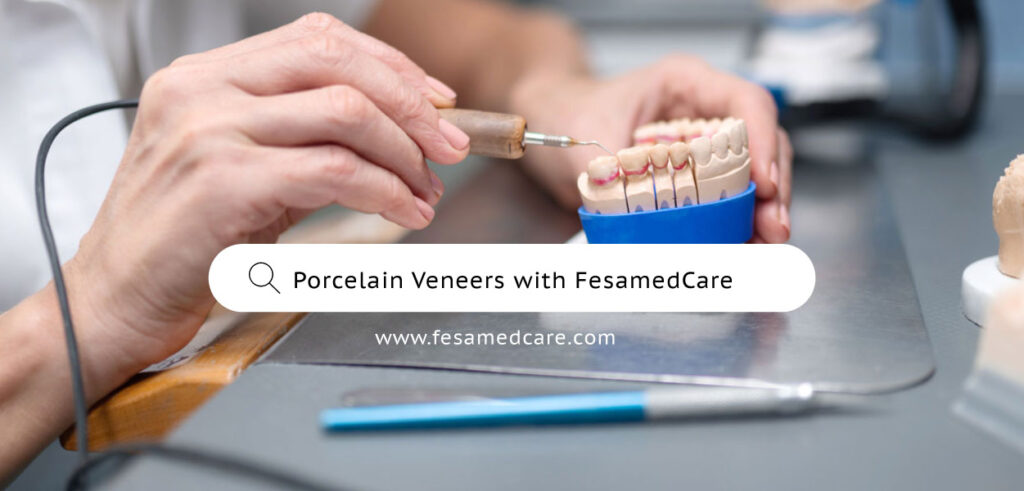How to Choose a Board-Certified Specialist in Colombia Plastic Surgery,...
Do Veneers Hurt? Here’s the Truth Behind Composite and Porcelain Veneers
When considering a smile transformation with dental veneers, a common concern is: “Do veneers hurt?” The short answer is no. Thanks to modern techniques and advanced materials, getting veneers whether composite or porcelain is a comfortable and minimally invasive procedure. Let’s explore why veneers don’t hurt, what the process involves, and how long they last!
What Are Dental Veneers?
Dental veneers are thin shells placed on the front of your teeth to improve their appearance. They cover imperfections like stains, gaps, and minor misalignments.
There are two main types:
–Composite veneers: Made from tooth-colored resin, usually applied directly to the teeth.
–Porcelain veneers: Custom-made from high-quality ceramic for a more natural look and longer durability.

5 Reasons Why Getting Veneers Doesn’t Hurt
- – Minimal Tooth Shaving
Modern veneers require only a tiny bit of enamel to be removed—about 0.3 to 0.5 millimeters. This ensures a snug fit but doesn’t cause discomfort. - –Local Anesthesia (if needed)
For patients who are nervous or sensitive, dentists can use local anesthesia. This numbs the area and makes sure you’re comfortable during the tooth preparation. - –No Invasive Drilling
Unlike getting a dental crown or a root canal, veneers don’t require deep drilling or touching the nerves. The process is quick and precise. - –High-Quality Materials
Today’s composite and porcelain materials are designed for comfort and biocompatibility. You won’t feel any difference once they’re bonded to your natural teeth. - –Quick Recovery
After the procedure, most patients feel no pain at all—just excitement about their new smile!
The Process of Getting Veneers: Step by Step
1. Consultation and Smile Design
You’ll discuss your goals with the dentist and choose the shape, size, and shade of your new veneers.
2. Tooth Preparation
The dentist gently polishes a minimal amount of enamel—no more than what’s needed for a natural look and perfect fit.
3. Impressions and Fabrication
For porcelain veneers, a digital or physical impression is sent to a dental lab to create custom, natural-looking veneers. Composite veneers can often be done in one appointment.
4. Veneer Bonding
The dentist bonds the veneers to your teeth using a special adhesive, making sure they’re aligned and polished.
5. Final Adjustments
You’ll leave the office with a brand-new smile, and if needed, small tweaks can be done to ensure a perfect fit.
How Long Do Veneers Last?
Composite veneers:
Typically last 5 to 8 years with good care. They’re great for quick results and smaller cosmetic fixes.Porcelain veneers:
Last 15 to 25 years or even longer. They’re incredibly strong and resistant to staining, making them ideal for a long-term transformation.
Conclusion: A Beautiful Smile Without the Pain!
Getting veneers—whether composite or porcelain—is a comfortable, safe, and effective way to achieve your dream smile. There’s minimal shaving involved and virtually no pain, so you can enjoy your smile transformation without worry.
Ready to explore your options? Book your free consultation with Fesamedcare today and take the first step toward a confident, beautiful smile! 🌟🦷
Choose the right Expert Dentist with www.fesamedcare.com
Why You May Need a Gastric Sleeve Before Plastic Surgery
Why You May Need a Gastric Sleeve Before Plastic Surgery...
Why You Shouldn’t Delay Your Root Canal
Why You Shouldn’t Delay Your Root Canal What Patients Really...
Stem Cells in Colombia
Stem Cells in Colombia Stem cell therapy and regenerative medicine...




